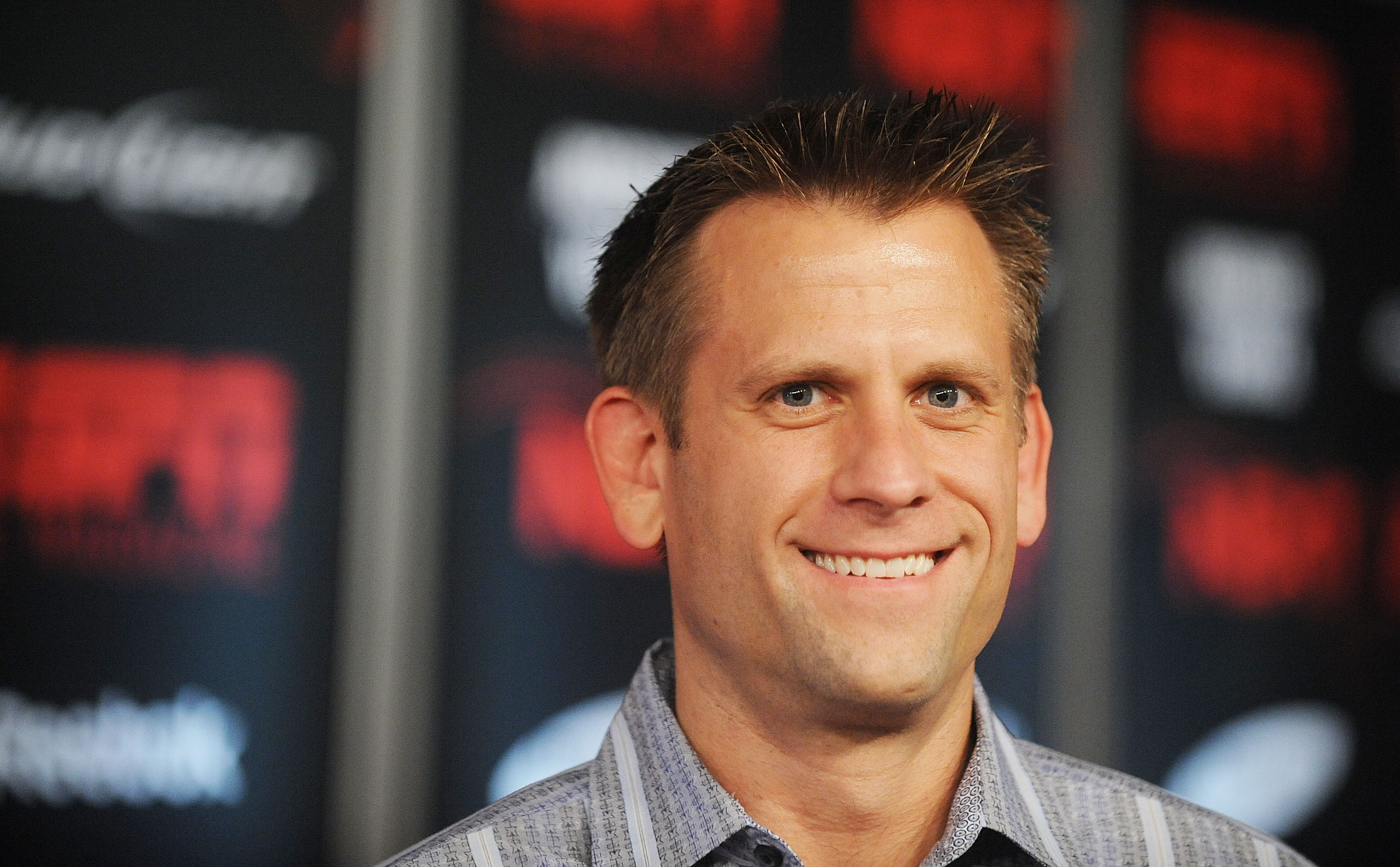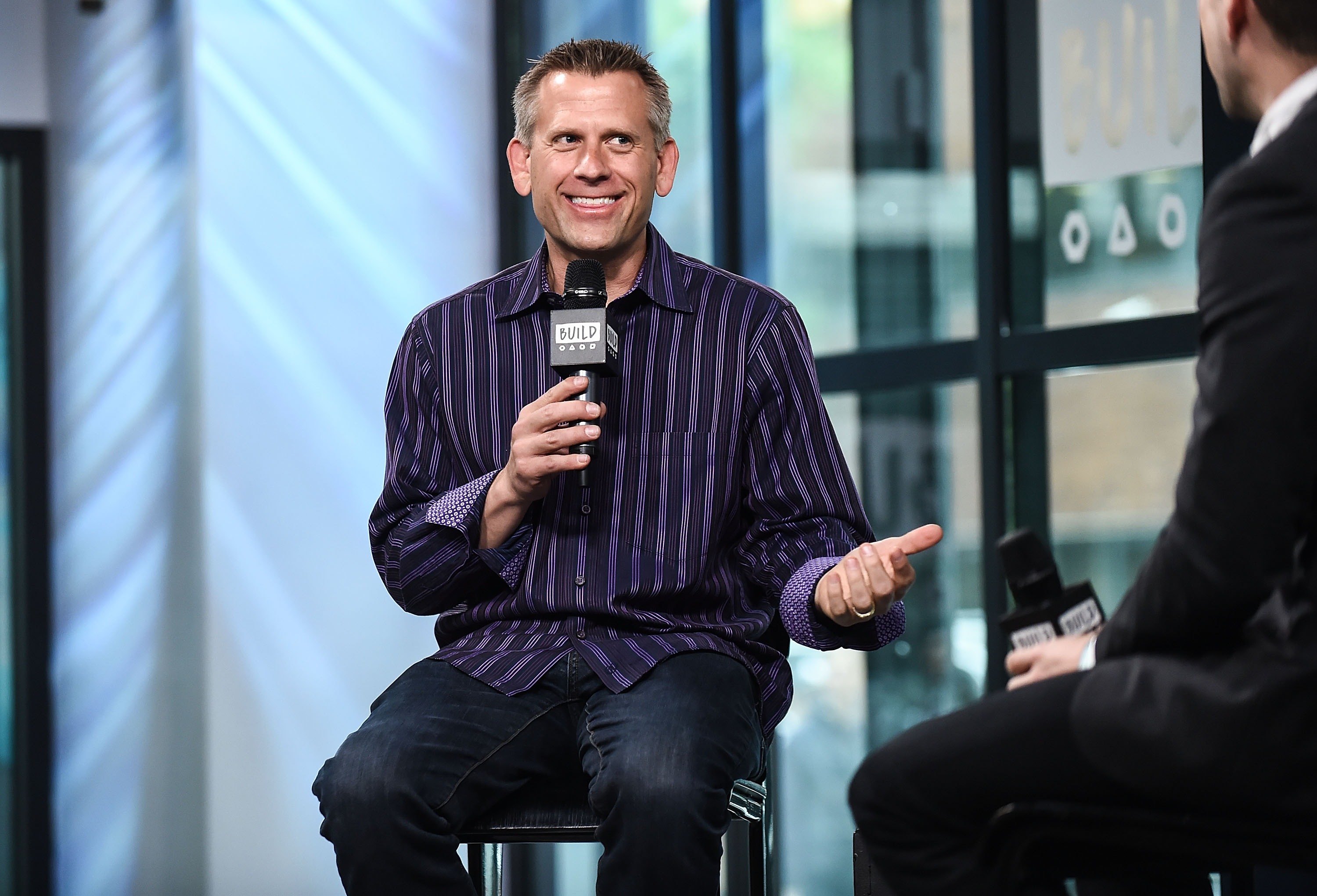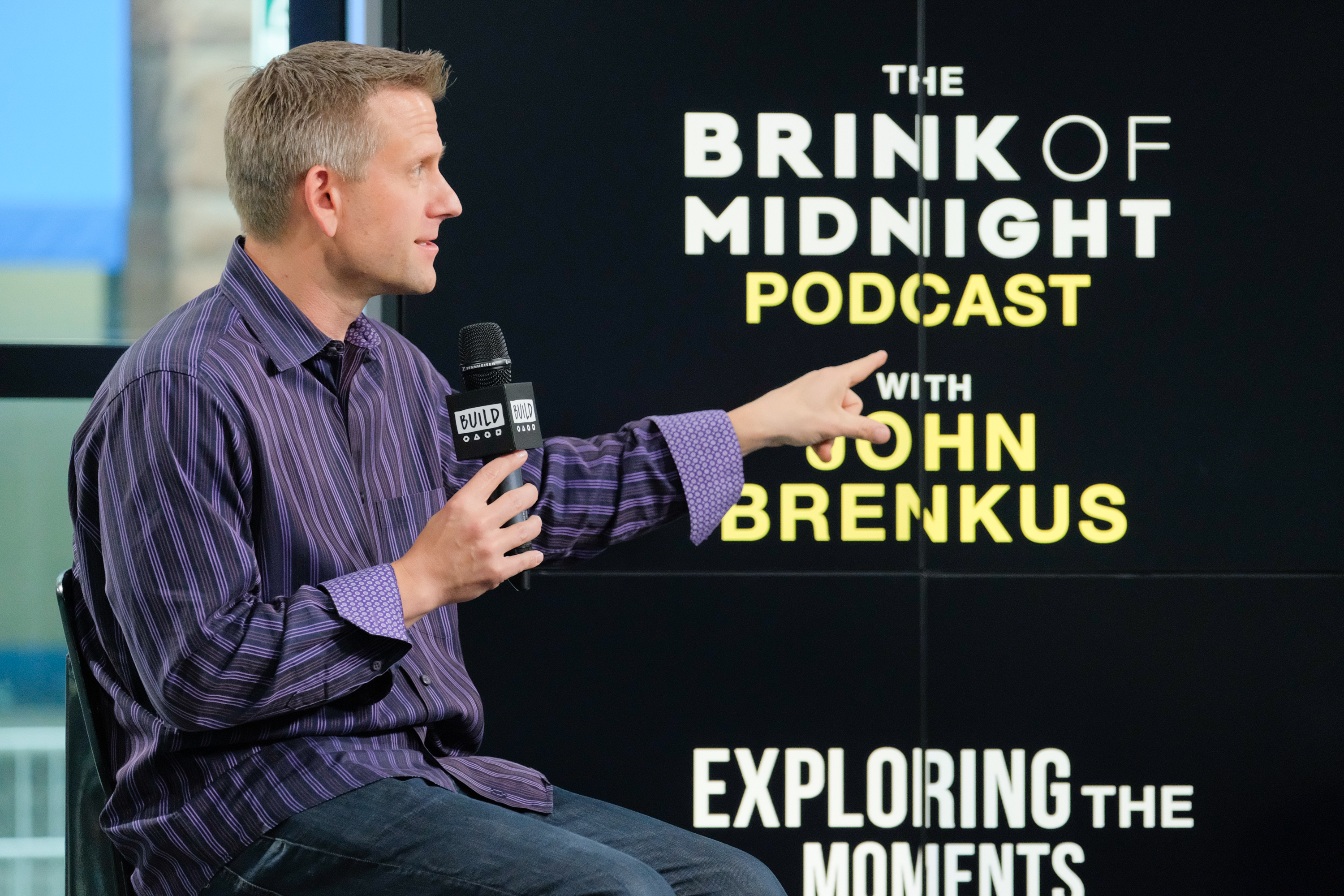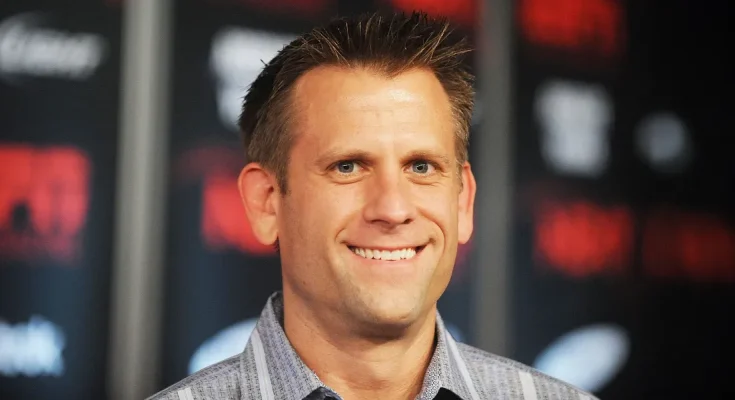The mind behind one of sports television’s most innovative shows once spoke openly about a personal battle with darkness — a revelation gaining new attention following his sudden death.
John Brenkus, co-creator and host of the Emmy Award-winning show “Sport Science,” has died at 54. His death was announced on June 2, 2025, in a statement shared on his official X account.

“It is with profound sadness that we share the news that John Brenkus has passed away,” the post read. “John, co-founder of Base Productions, founder of Brinx.tv, and co-creator and host of the six-time Emmy Award-winning ‘Sport Science,’ had been battling depression.”
“John lost his fight with this terrible illness on May 31st, 2025. His heartbroken family and friends request privacy at this time and encourage anyone who is struggling with depression to seek help,” concluded the message.

The tragic news of his death was also shared on Brinx.TV’s Instagram page. Brenkus was widely known for his role on “Sport Science,” where he brought scientific analysis to the athletic world in an engaging and educational way. He was also the CEO of Brinx.TV, host of “The NIL House,” and a best-selling author.
In a video posted on X, ESPN paid tribute to Brenkus, calling him “an innovator, an entertainer, and an educator,” adding that “he will be missed by many.”
John Brenkus, the co-creator and host of ESPN's Sports Science, has died at the age of 54, Brinx TV announced in a statement Sunday. pic.twitter.com/n0OSXYKDUZ
— ESPN (@espn) June 2, 2025
Fans reacted with shock and sorrow across social media platforms, with many acknowledging his impact and addressing the ongoing importance of mental health awareness.
One wrote, “Devastating. Way too young. It hurts worse when people lose their battle with depression. Mental health is just as serious as physical medical conditions. Thanks for the memories John. Rest in Peace [sic].”

Another commented, “I’m so sad for the Brenkus family that John succumed to this illness. He was a huge part of my & so many other people’s childhoods. I hope his loved ones can take solace in the fact that he impacted so many people’s lives in a good way [sic].”

A third netizen expressed, “Depression is a silent killer… it makes your worsening symptoms even more difficult to deal with and manage… as someone who suffers from depression and anxiety, I implore everyone who needs help to please seek it and do not let stigma stop you from seeking mental help… RIP [sic].”
Another shared, “A tragic day in the sports world. We lost a truly revolutionary scientist and journalist. You will be missed.” One added, “Depression is Horrible [sic] and very hard to fix.”

Yet another viewer penned, “No way wow. Used to watch sportscience everyday. RIP [sic].”
On Facebook, tributes reflected similar grief and support for his family. A heartbroken fan divulged, “This can’t be true! It’s so very sad!” Another divulged, “I’m so sorry to hear this heartbreaking news. Wishing peace for his family.”
A different viewer noted, “I’m so very sorry for this painful, heartbreaking loss. The many comments from fellow JMHS classmates here stand in tribute to a truly great guy. He remains loved by all who knew him in this life. Your family is in my heart.”

Tributes from the sports community quickly followed. Robert Griffin III, American football quarterback, posted on X, “Prayers up for John Brenkus and his family. The man who gave us the Emmy Winning Sports Science lost his battle with depression…”
Marcellus Wiley, American football defensive end, wrote, “RIP @johnbrenkus_.” Mardy Fish, American former tennis player, added, “Was lucky enough to do a Sport Science with John a while back. A great man. Please seek help if you are struggling. YOU ARE NEVER ALONE! RIP John.”

A previously recorded YouTube video from January 2023 resurfaced in the wake of Brenkus’ passing. In the emotional conversation with Wiley, he opened up about his mental health struggles.
“So the time in my life where I was counted out, where I counted myself out, I was living in Park City, Utah, and I fell into a very deep depression,” he said.

At the time, Brenkus had recently sold his company and “Sport Science” to ESPN. He believed he had reached a pinnacle in life, but the reality of isolation, physical setbacks, and a lack of routine caused his mental health to decline.
“And you know, the isolation that you feel living in a mountain town — the cold weather, injuries, things not going right — I spiraled into a deep, deep depression, and I was flat-out suicidal,” recounted Brenkus.

Brenkus reflected that he had reached a critical point, but his dog, Zeppelin, intervened at the right moment.
“I was ready to do it, and my dog Zeppelin came to my rescue — literally pulled on my pants, on my jeans, and literally was going crazy, wouldn’t leave me alone,” he recalled. “And I, like in my suicidal funk, was like, what am I doing?”
That moment became a turning point. “I literally picked up my phone, called my mom. I said, there’s something wrong with me. I am, like, mentally lost,” he noted.

Brenkus described a difficult road to healing. “I then went through a battle — I mean, I’m telling you, a battle — to get out of it,” he revealed. “I went to six different psychologists and psychiatrists. Finally found my answer. Finally found the way.”
He credited Dr. Cindy, a professional in Virginia, for helping him recover. “We found a solution, and I have never been depressed a day in my life from that moment forward,” he shared.

“And I am so grateful for the angel, Dr. Cindy, who came down and really was able to demonstrate to me that depression is not about being sad — it’s about the way that we are constructed as humans having thought loops,” discussed Brenkus.
Brenkus emphasized that these “thought loops” could trap people in a mental cycle, even when they seem fine externally. “And that’s why you see people who seem like they’re perfectly fine, but inside their head they’re just looping and looping and looping and they try to quiet those voices,” he explained.

“Unfortunately, look — mental health, suicide — it’s a real thing. And I counted myself out. And I consider it my greatest blessing and greatest victory that I went to and had to march through the valley of darkness to get where I am today,” he remarked.
In the same interview, Brenkus highlighted the need to end stigma around mental health. “The darkness is very real, and it’s inside all of us. It’s hardwired — that and the looping and looping and looping.”

He mentioned, “The conversation that we’re having as a society about mental health — for whatever reason, there’s like this stigma to it. That, ‘Oh man, you need help, you are not healthy mentally.’ If you say, ‘My God, I suffer from mental health issues,’ people can look at you like, ‘Oh my God… that’s what’s wrong with you.'”

“Therefore, something like depression — which is just a thought loop you can’t get out of your head — you don’t share it with anybody. You feel embarrassed about it,” stated Brenkus.
He recounted a moment of mental crisis. “It really [was] all about that moment of darkness and really reaching the ultimate darkness where — my God — I want to kill myself. For whatever reason, it makes sense when it’s that dark.”

Despite the despair, he offered hope. “There are hotlines. There are friends. There are family. There are other people. Talk about it. You have to tell people, ‘I’m not thinking right, and I know I’m not thinking right, and I know I can’t find my way out all by myself.'”
He concluded, “Once you express that, then you can solve the problem. If you keep it inside, it’s really a formula that can end quite badly.”
Brenkus is remembered for his groundbreaking work in sports media, his openness about mental health, and the lasting impact he made on audiences and colleagues alike.
If you or someone you know is considering suicide, please contact the National Suicide Prevention Lifeline at 1-800-273-TALK (8255), text “help” to the Crisis Text Line at 741-741, or go to suicidepreventionlifeline.org.

